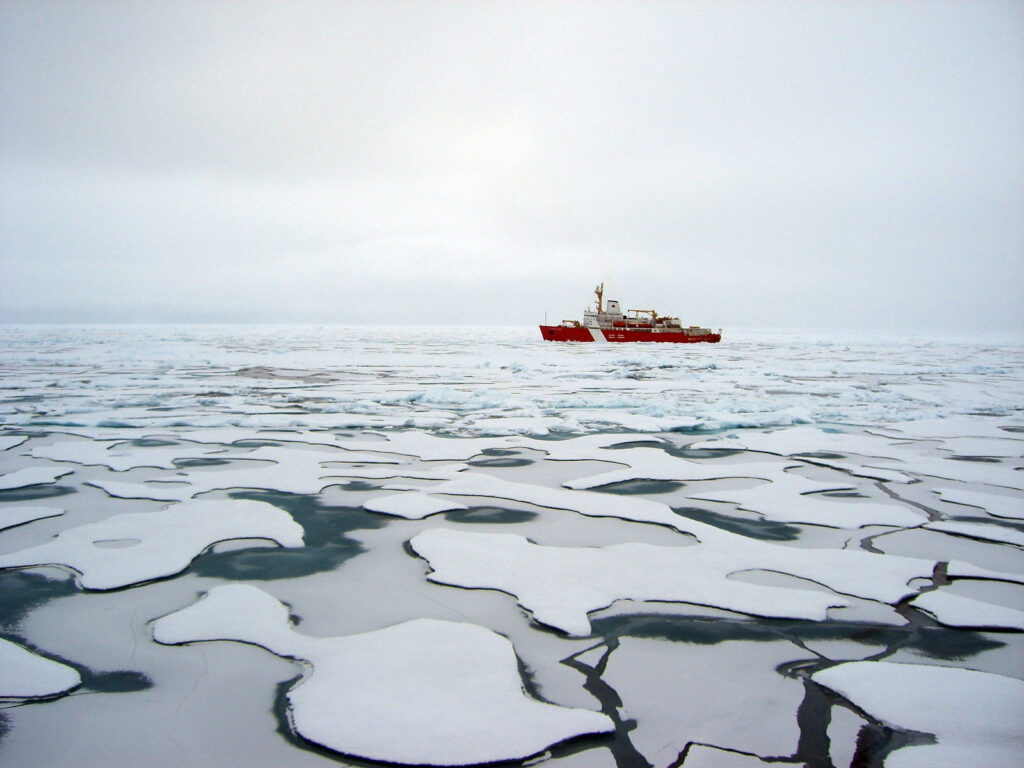The allocation of the continental shelf in the Arctic region has generated significant speculation. Some, particularly in the media, portray this issue as one of the main reasons for a future Arctic conflict, emphasizing the region’s abundant resources. On the other hand, other analysts highlight the cooperative approach taken in this allocation process thus far, advocating for continued adherence to international law and cooperation in the future.
It is essential to differentiate between these optimistic and pessimistic perspectives to carefully assess the potential consequences for Arctic nations, including Canada. The wording of international law does leave a notable political risk concerning the possibility of a conflict arising over the Arctic continental shelf. However, this risk is mitigated by the presence of constraining factors.
The Commission on the Limits of the Continental Shelf: Cooperation and Mandate
The United Nations Convention on the Law of the Sea stipulates that states can mutually agree to resolve overlapping (contradictory, and therefore potentially conflicting) claims. We observed this, for example, in June 2022 when Denmark and Canada reached an agreement to settle their overlapping claims, resulting in the delimitation of the continental shelf between the two countries in the Labrador Sea. States can also submit data to the United Nations Commission on the Limits of the Continental Shelf (CLCS) for the Commission’s experts to provide recommendations. Optimism regarding continental shelves often hinges on this Commission, particularly on how states respond to its recommendations. According to our analysis, most states have either implemented these recommendations or accepted them without having yet implemented them (98%). Several states have also agreed to gather additional scientific evidence to resubmit their cases at the request of the Commission’s experts. Russia is an example in this regard. These examples underscore the significant legitimacy of the CLCS among sovereign states. The adherence to the sometimes lengthy Commission procedure and the acceptance of the opinions of CLCS experts are undoubtedly optimistic signs for the resolution of these issues.
However, it is important to understand that the CLCS only determines the outer limits of continental shelves where overlapping claims exist between two or more states. In other words, the Commission does not provide opinions on areas where disputes arise among the states claiming those areas. In our specific case, for example, the Commission is not tasked with deciding where the Canadian portion of the Arctic continental shelf ends and where the Russian portion of the same shelf begins; this task ultimately falls upon the concerned states to resolve through negotiations. Two observations are therefore evident. On one hand, the Commission possesses legitimacy, but it derives from avoiding contentious or conflictual issues, leaving disputes to be addressed by the states themselves. On the other hand, Arctic states must engage in negotiations to reach a resolution: Russia, Canada and Denmark all lay overlapping claims to the Lomonosov Ridge (, which must be settled through negotiations among the parties involved. This situation carries numerous implications for Canada.
Negotiating the Arctic Continental Shelf
The primary consequence for Canada is the inevitability of negotiations regarding the Arctic continental shelf. The agreement signed in June 2022 with Denmark, including aspects related to the continental shelf in the Labrador Sea, is an example of such negotiations yielding results. However, in the context of the Arctic continental shelf, this entails Canada engaging in negotiations with Russia, a state with which Canada has had limited direct interactions, both before and after the Ukraine invasion. It is worth noting, however, that Russia and Canada have adopted similar strategies on this issue, submitting an initial set of data before later resubmitting additional data with significantly expanded claims on the Arctic continental shelf. Thus, Canada’s claim extends to the limit of Russia’s exclusive economic zone, while Russia’s claim stretches to the limit of Canada’s exclusive economic zone.
However, Russia has recently demonstrated its ability to orchestrate legal warfare (lawfare) as a means to achieve its strategic goals. Negotiations over the Arctic continental shelf could thus be influenced by this strategy on Russia’s part. Tactics such as obstructionism, the promotion of alternative interpretations, and the deployment of resources, as well as the construction of infrastructure near disputed areas, are well-established elements in the Russian lawfare toolkit[i]. Russia is already using this type of tactic with regard to the Norwegian archipelago of Svalbard and its continental shelf. In light of this, it would be wise for Canada to engage with its allies to gain a better understanding of Russian hybrid strategies. Oslo, among others, boasts a rich history of interactions with Moscow: Canada could draw lessons from the Norwegian experience with Russia, both in dealing with challenging issues (such as the Svalbard case) and achieving successes (the 2010 border agreement in the Barents Sea).
Reflection and Means
Of course, the issue of the Arctic continental shelf is unlikely to find resolution in the near future, and the exploitation of resources on the shelf must be considered from a long-term perspective rather than a short-term one. Ongoing discussions are focused on the establishment of common regulations for deep-sea mining activities, and all of these discussions have been postponed until 2024. The “tyranny of geography” further diminishes the appeal of resources in the central Arctic Ocean: operating costs will inevitably be higher than deposits found elsewhere on the planet. Travel within the region will also remain challenging, even with a thinner or reduced ice cover, which poses an additional limit on exploiting the continental shelf. Canada should use this extra time to reflect on the approach to be taken regarding the central Arctic Ocean. Until now, Canadian Arctic policy has focused on the Northwest Passage and continental defence. However, a comprehensive strategy will need to be developed to defend Canadian interests and play a role in this new region that is opening up. This necessitates the development of means and capabilities required for a tangible presence in this area. So far, the ships acquired or announced by Canada are not intended for the Central Arctic Ocean: offshore patrol ships are ill-suited for the environmental conditions in this ocean. The construction of two polar icebreakers announced in 2021 should partially fulfill this role. Still, these icebreakers will have numerous tasks, especially if we see increased maritime traffic through the Northwest Passage. Resources dedicated solely to the central Arctic Ocean would be necessary to demonstrate the seriousness of Canada’s commitment to this region.
Reflecting on and investing in ships to monitor and maintain a presence in this zone will undoubtedly benefit Canada in its negotiations over the Arctic continental shelf. Investing in defence is always a risky endeavour in Canada. However, support for Arctic defence receives significant backing from the Canadian population, as demonstrated by a recent Ipsos poll. This is a positive sign. In this specific context, defence investments would be part of a broader framework in which the country needs to develop a coherent approach for a region that will see increased human activity. It is also a region that will introduce a challenging neighbour for Canada, Russia, which possesses considerable means and tactics with which Canada has little direct experience. It is to be hoped that deliberations on these issues will begin as soon as possible: relying solely on international organizations in this case will not provide a comprehensive solution.
[i]See Tropin at the following link: https://www.ceeol.com/search/article-detail?id=971596 or Goldenziel at the following link: https://www.cornelllawreview.org/2023/01/23/an-alternative-to-zombieing-lawfare-between-russian-and-ukraine-and-the-future-of-international-law/





Comments are closed.